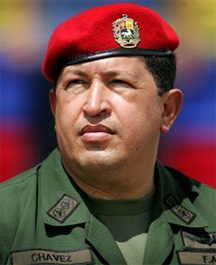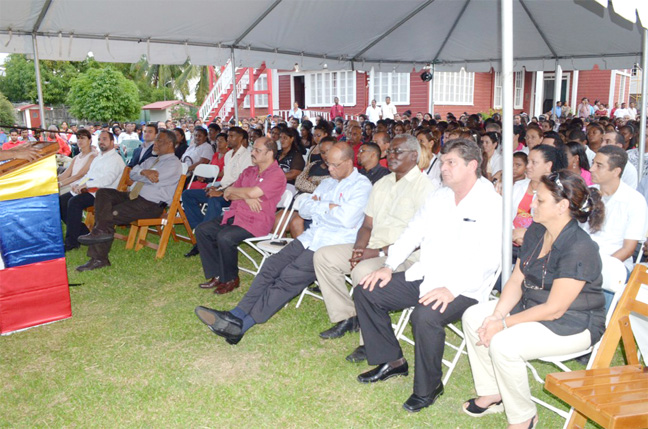Finance Minister Dr Ashni Singh said Guyana has reaped enormous benefits from its relationship with late Venezuelan President Hugo Chavez, particularly the ground-breaking PetroCaribe Agreement which has impacted the energy and other sectors.
Dr Singh recalled the leadership Chavez demonstrated in the drafting of the initiative that was designed to lend support and open markets to small nations, in his address at an evening of reflection held to honour the late leader at the Red House on Monday.

The PetroCaribe initiative allowed signatory nations to benefit from subsidised Venezuelan fuel during a time when oil prices had skyrocketed from US$40 per barrel to over US$100 per barrel, challenging many nations to meet fuel import costs and balance budgets, a GINA report said.
Dr Singh was part of the Guyana delegation that visited Venezuela as the Caracas Energy Accord, the forerunner to PetroCaribe, was being drafted. The minister said he was impressed with the way Chavez undertook the discussions, giving insightful comments about the peculiar set of challenges each small country representative presented at the meeting. “President Chavez took the time to sit down and devise with these small countries… an innovative arrangement that would subsequently come to serve all of our countries so well,” he said.
In June 2005, Guyana signed onto the PetroCaribe Agreement along with Antigua and Barbuda, The Bahamas, Belize, Cuba, Dominica, the Dominican Republic, Grenada, Jamaica, Nicaragua, Suriname, St Lucia, St Kitts and Nevis and St Vincent and the Grenadines. The agreement facilitates access to fuel from Venezuela on a credit basis over a period of at least 25 years on an interest-free basis.
During a state visit by then President Bharrat Jagdeo in 2010, Chavez had also offered to increase the quantity of oil shipped to Guyana under the agreement from 5,000 barrels a day to 10,000, GINA said.
“The finance portions of our petroleum purchases were intended to create for ourselves a development fund which would be greater than all the funding that would have been flowing to Guyana and the Caribbean from multilateral institutions like the IDB,” Prime Minister Samuel Hinds said in his address at the function.

The prime minister recalled that during meetings, the Venezuelan leader shared his vision to utilise wealth for the benefit of the people and less fortunate allies in the same way that others supply oil to the affluent.
The PetroCaribe agreement also featured a reciprocal component that facilitated exports from its beneficiaries into the Venezuelan markets. In Guyana’s case in 2011 rice farmers and millers were given a preferential market where 30,000 tonnes of white rice at the cost of US$800 per metric tonne and 50,000 tonnes of paddy at the cost of US$480 per metric tonne were shipped to Venezuela.
“Rice farmers and millers throughout the length and breadth of our country acknowledge the phenomenal impact that this initiative had on their own businesses. Oftentimes global and regional initiatives don’t touch people’s lives in a direct way,” Dr Singh said.
The Agreement also impacted the local energy sector, where the Kingston Power Plant was built with Wartsila engines and the new 15 megawatt Vreed-en-Hoop generators.
Minister of Home Affairs Clement Rohee, in his presentation, spoke of Chavez’s efforts at constitutional reform, 10 strategic objectives to address social, economic and political ills and becoming the first Latin American leader to attract a mass of followers on Twitter.




